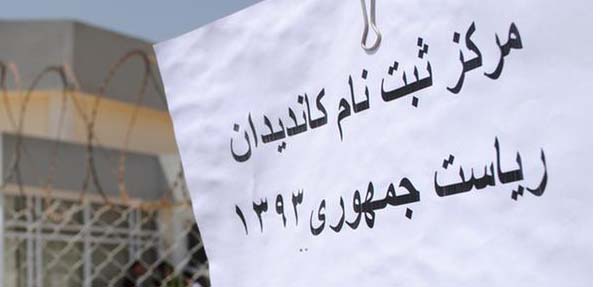KABUL - The newly established Electoral Reform Commission (ERC) kicked off its reform agenda this week by engaging members of the international community, women rights advocacy groups and other civil society institutions in hopes of culling feedback on the most pressing issues facing Afghanistan's electoral system.
Since its formation last week, the ERC has hit the ground running, seeking to make up for time lost after months of delays caused by disagreements between top national unity governmental leaders over the composition of the commission. The scheduling of Parliamentary elections is largely dependent on how and when the ERC gets reform implemented.
"The commission (ERC) is determined to take advantage of all ideas and perspectives that seem to be in the interests of Afghanistan," ERC chairman Shah Sultan Akifi said of the stakeholder meetings held this week.
Referring to the international election experts engaged by the ERC, Akifi said they have been asked to submit written recommendations. "To be honest, we need their ideas, and we do not believe that the ideas offered by foreign experts is interference - we believe that it is for the betterment of Afghanistan," he said.
Specifically, the ERC has said it hopes international experts, many of who are associated with organizations and governments that have threatened to cut off their funding of the Afghan electoral system if reforms are not pursued, will shed light on how Afghanistan can learn from other electoral regimes around the world, especially regarding electronic voting systems.
"What we expect from international experts is help understanding, in line with the electoral experiences of other countries around the world, which method is more reliable and practical in Afghanistan," ERC member Assadullah Saadati explained on Thursday. "We want them to provide us the necessary suggestions and hear their opinion on how it is possible for the ERC to incorporate electronic voting in Afghanistan to its work agenda in the long term," he added.
Thursday's meetings included a gathering with members of Afghan civil society and women's rights groups. The meeting involved discussion of a number of issues, such as providing greater awareness about the voting process to Afghan women, increasing women's participation in elections, and preventing the intimidation and defrauding of female votes.
"Electronic voting should be introduced for parliamentary elections to avoid the misuse of women's votes and to prevent riggers from filling the ballot boxes with names of women voters," civil society activist Suraya Parlika suggested.
Beyond procedural and technology-based reforms, those gathered on Thursday also pushed for personnel changes at the level of the electoral commissions, which have suffered major public image issues since the tumultuous 2014 presidential race. "We never supported members of the election commission being associated with a party," MP Raihana Azad said. "Sovereign and neutral people must be appointed to the election management bodies."
Talking about the various stakeholder meetings that have been held this week, ERC member Faizulah Zaki reiterated that the commission's top priority in the near term is starting to rebuild public trust in elections. "A variety of ideas were gathered, but the important issue is to see how we can rebuild trust among the people of Afghanistan toward elections, and, by implementing comprehensive and basic reforms, pave the way for holding free and transparent elections in order to resolve the uncertainties," he said.
The ERC plans to complete its consultations by the end of the week. It has set a deadline of one month for submitting its first round of recommendations to the government. (Tolonews)

